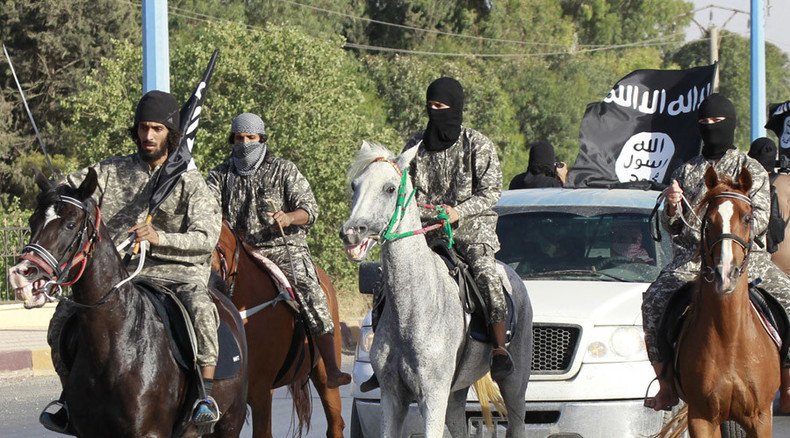‘Family and friends recruit 95% of ISIS jihadists, not mosques’ – Oxford professor

Foreign fighters who join Islamic State (IS, formerly ISIS/ISIL) are almost always radicalized by family and friends and are very rarely recruited in mosques, an Oxford University terrorism expert has claimed.
Oxford professor Scott Atran said three quarters of foreigners joining IS are persuaded to do so by their friends, while an additional 20 percent sign up through family members.
Addressing the United Nations Security Council, the esteemed anthropologist said young Muslims who stay in mosques are less likely to join terrorist groups.
He said IS has been successful in its overseas recruitment campaign because it offers young people a dream to fight for and strong bonds of comradeship - something the West has yet to adequately counter.
Atran has conducted extensive field research interviewing former and current militants across Europe and the Middle East.
He described IS as the most “dynamic counter-culture revolutionary movement since World War II with the largest volunteer fighting force.”
Atran’s research has led him to conclude that IS recruiters “understand youth much better than the governments that are fighting against them.”
Young recruits who travel to Syria to join IS are mostly in “transitional stages in their lives.”
Muslim who asked "why the f*** did you come" got ‘death threats from British IS supporters' https://t.co/tkGiTb87jbpic.twitter.com/zNpjh3GVjc
— RT UK (@RTUKnews) November 23, 2015“Students, immigrants, [young people] between jobs or mates, having left or about to leave their native family and looking for a new family of friends or fellow travelers with whom they can find significance in life. Most have had no traditional religious education.”
The New York-born academic said IS gives young people meaning in their lives. “[IS offers the] dream of a life of significance, through struggle and sacrifice and comradeship,” he said.
IS also knows how to speak to the rebelliousness and idealism of youth. They are adept at using social media to target young people aged 15 to 24.
Atran said young people are drawn to radical ideology in a bid to find an identity in a fast-changing world undergoing “the dark side of globalization.”
“They radicalize to find a firm identity in [a] flattened world, where vertical lines of communication between the generations are replaced by horizontal, peer-to-peer attachments that can span the globe.”
The anthropologist said parents are rarely aware of their children’s desire to join IS, and that young Muslims are more likely to turn to violence when they are expelled from a mosque for expressing radical beliefs.
Atran warned that by focusing on military intervention and policing, the West risks losing the next generation to IS.
“Unless we understand these powerful cultural forces, we will fail to address the threat. When as now the focus is on military solutions and police interdiction, matters have already gone way too far. If that focus remains, we lose the coming generation.”
The anthropologist said governments need to counter IS by offering youth “something that makes them dream. This is what [IS] offers.”
LISTEN MORE:











